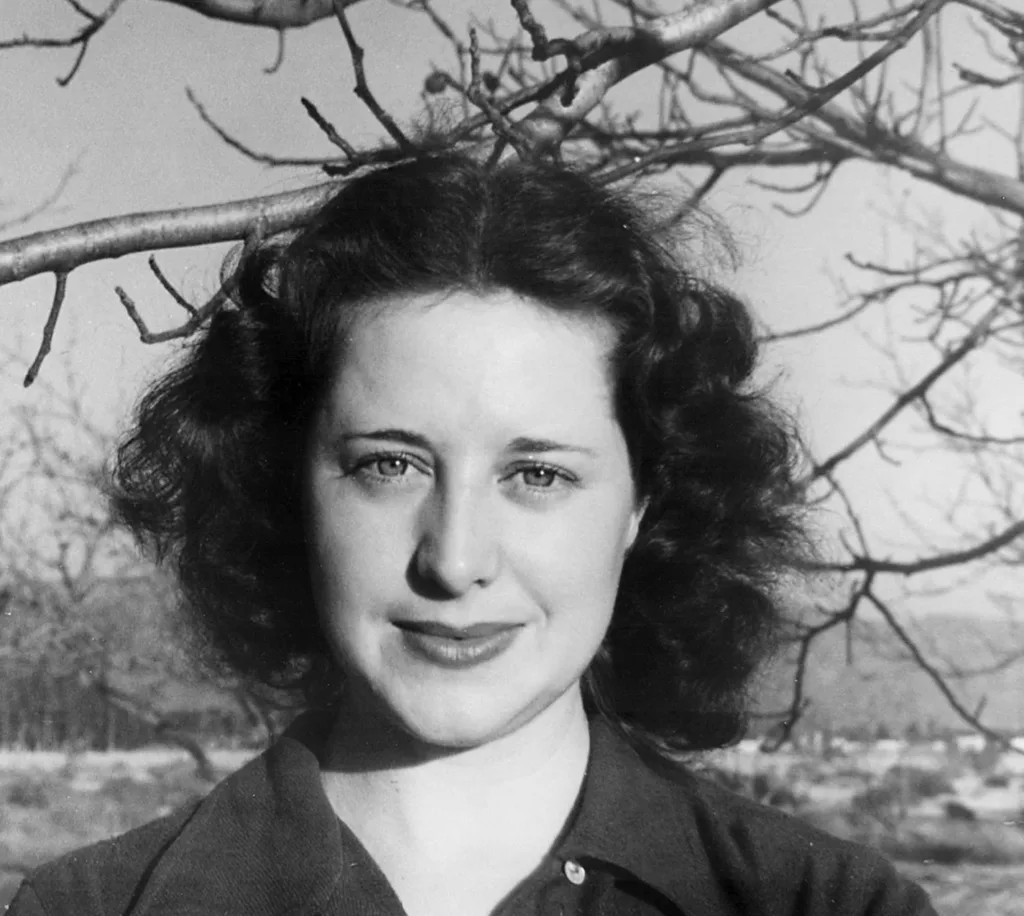
For the last several years, I’ve been working on a biography of the writer Sanora Babb (1907–2005), a rebel for any age and master of reportage who is today basically forgotten. Raised poor in eastern Colorado and the Panhandle of Oklahoma, Babb’s métier was humanistic portrayals of inhumanely treated workers. Babb reported on the dangerous conditions at the Hoover dam build site and profiled the model farms of the Soviet Union for publications such as New Masses. In 1938, she volunteered for the Farm Security Administration, resettling “Dust Bowl” refugees in California’s Central Valley. Reporting to Tom Collins, who set up many of the camps, Babb lived amid these farmworkers for eight months. She met with 3,640 individuals and made detailed notes about the “things they said, did, suffered.” She also began a novel, Whose Names Are Unknown. The title came from an eviction notice she had spotted on a farmworker’s shack: To John Doe and Mary Doe Whose True Names Are Unknown. Bennett Cerf, the editor and cofounder of Random House, sent her a contract based on the first four chapters.
Around this time, Babb was invited to have lunch with Tom Collins and John Steinbeck—a genuine star since the publication of Of Mice and Men a year earlier. The three talked in detail about the camps, the refugees’ plight, the terrible control the Associated Farmers wielded over the communities, and the powerful political lobby of farm owners. Steinbeck knew Collins from earlier reporting on the farmworker crisis for the San Francisco News and had asked if he could show him around the camps again. Before they parted ways, “Tom asked me to give [Steinbeck] my notes,” recalled Babb. “I did.”
Over the next year, Steinbeck returned to his study for a third attempt at writing a Dust Bowl novel and Babb continued her service work, drafting her novel in the bits of time life allotted.

-
In June of 1939, Babb traveled to New York to hand-deliver Whose Names Are Unknown to her publisher, just a year after signing the contract.
-
Two months earlier, a year after Steinbeck met Babb, Viking published The Grapes of Wrath.
-
By this point, Grapes had sold more than 250,000 copies and film rights had gone for $75,000. The Grapes of Wrath won the National Book Award and Pulitzer Prize for fiction and was cited prominently when Steinbeck was awarded the Nobel Prize in 1962.
-
Steinbeck had tried twice to write a Dust Bowl novel. According to his journal, Grapes grew out of the “great gobs of information” derived from Babb’s reports and notes as well as letters from Collins with exacting and “vital information.” “I need this stuff,” Steinbeck wrote—especially since he only spent two weekends in the field, so shaken was he by the utter poverty and desperation he witnessed.
-
The readers’ reports echoed Cerf’s observation that it seemed “as if Sanora Babb and John Steinbeck had thoroughly discussed an identical theme and set out to write their separate books—so similar are GOW and WNAU.” In Babb’s book, though, “the plight of these people is described with great understanding that indicates personal experience.” For its part, Grapes “had color, excitement and humor,” while Babb’s tone is of “a piece [with] the drabness of her people.” The reviewer closes: “If there hadn’t been a Grapes, I would say unreservedly, here is something new, something fine, we must publish. Moreover, an unusual talent is displayed in this first novel.”
-
Meridel Le Sueur (roommate to Emma Goldman, Hollywood stuntwoman, purveyor of proletarian lit) wrote to Babb years before this episode, exhorting her to write “shamelessly.” “You must write now like a woman,” Le Sueur advised. “Give yourself your experiences as a woman and make a path.” Whose Names Are Unknown was published by the University of Oklahoma in 2004. For more than six decades, a story of women who survived the Dust Bowl was kept from its rightful readers.

